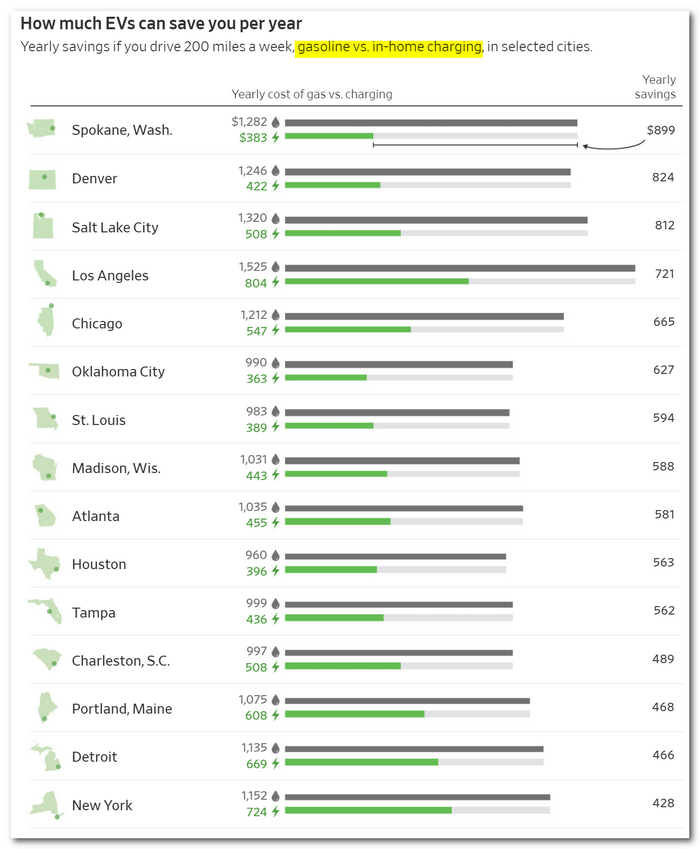Just a few disparate thoughts. One, I charge my Volt in the garage on 110 every night. Roughly 50 miles of range. It’s often enough to get through a day. I do service calls, so don’t drive to a set place every day. To go all EV I would need probably 100 miles of range to make it feasible. One place I go every week is 58 miles away. In the summer, when I get more miles to a charge, I can make it if I drive conservatively. This place has chargers. A year ago I could usually find one open, and charge while I work. No more. There are 4, and half the time time they are taken. So, I am happy for the gas backup. So, a full EV would work range wise, but I would need to get 240v service to get enough daily charge.
We a buying solar panels. So that is supposed to happen in the spring. We can’t get enough capacity installed to fully accommodate our electric needs, but it should cover most of it.
I belong to a Volt owners group on FB. People are reporting some of the prices being offered for their cars by some of the online sites. It makes it tempting to sell my Volt, drive a cheap gas powered car for a while, and hold onto the money until I find an EV I want. Really, none of the current EV’s, at least that I can afford, are appealing to me now. But, there will be one eventually.














![Craft A Brew - Safale S-04 Dry Yeast - Fermentis - English Ale Dry Yeast - For English and American Ales and Hard Apple Ciders - Ingredients for Home Brewing - Beer Making Supplies - [1 Pack]](https://m.media-amazon.com/images/I/41fVGNh6JfL._SL500_.jpg)














































